Ever forget a name, blank out on a word, or walk into a room and forget why you’re there? Sure, we’ve all done it, especially those of us who are over 40. Such slip-ups can leave us wondering, worrying, rationalizing, and otherwise wasting precious energy trying to convince ourselves that we are not careening down the slippery slope of no return towards Alzheimer’s disease.

Winter is the vata season and can lead to “mental fog.”
But does it seem like your memory gets worse over the winter? Not to worry! A recent study1 showed that the quality of cognition can vary, with poorer cognition occurring in winter and early spring. This seasonal fluctuation is likely due in part to winter’s enhanced immune activity, which protects us from colds and flu but can also lead to inflammation, a sure-fire memory stomper. Now, as the days thankfully lengthen, we can look forward to “longer” memory too!
As a practitioner of Maharishi AyurVeda® (MAV), I also look at these seasonal memory fluctuations as an expression of imbalance in the Vata Dosha, the supersystem or aspect of nature’s intelligence that governs our nerves and circulation. (See my Enjoy TM News article about these supersystems.) In the winter, which is the Vata season, symptoms such as forgetfulness can accompany the increase in coldness, dryness, and instability that characterize Vata. This causes some people to experience more “mental fog.”
Now, as the days thankfully lengthen, we can look forward to “longer” memory too!
Game-Changer Ahead
With this understanding of how seasonal factors can impact memory, we can also consider the good news that most “senior moments” are not harbingers of Alzheimer’s disease. For example, forgetting names or words that pop into your mind later is usually a sign of normal aging.
And there’s more good news. What has been considered impossible—the slowing, stopping, or even reversing of memory decline—has now become a reality.
What’s the Evidence?
There are now at least three papers that have been published in peer-reviewed journals2,3,4 documenting the reversal of cognitive decline, memory loss, and even Alzheimer’s in over 150 patients, using a natural, multi-modality approach.
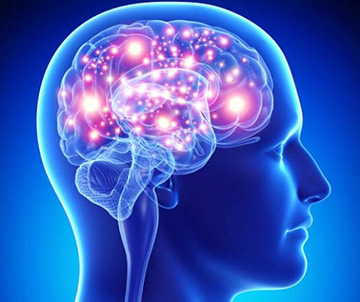
A natural, multi-modality approach has been shown to improve brain health
I’ve been using this multi-faceted health breakthrough, including the Transcendental Meditation® (TM®) technique and Maharishi AyurVeda, in my own medical practice for the past year and a half, with very positive results. My patients and their family members report improved memory and lessening of Alzheimer’s symptoms.
Results include improved ability to recall daily events, restoration of lost memories, happier mood, more social interaction, and regained ability to go to the gym, shop for groceries, and remember people’s names and faces—all critical abilities whose restoration is tremendously heartening.
I’ve been using this multi-faceted health breakthrough, including the Transcendental Meditation technique and Maharishi AyurVeda, in my own medical practice for the past year and a half, with very positive results.
Where Do the TM Technique and Maharishi AyurVeda Fit In?
In the language of Maharishi AyurVeda, many of these approaches work through a process of balancing the body’s own inner intelligence, which expresses itself through the three Doshas, including Vata (movement and flow), Pitta (digestion and metabolism), and Kapha (structure, fluids, and lubrication).
This understanding is inherent in the latest approaches to memory loss, which are outlined in two additional peer-reviewed papers, one on Ayurvedic herbs for improving memory, learning, and brain health,5 and another describing the underlying causes of Alzheimer’s in terms of imbalances in the three Doshas.6

The body’s inner intelligence expresses itself through the three doshas
Maharishi AyurVeda creates a strong foundation for brain health and preservation of memory and cognitive function through two fundamental approaches. First, it recommends reducing stress through TM practice. Second, it matches diet, lifestyle, cleansing, and herbal recommendations to the needs of your mind-body type. For more information, see my article and quiz “What’s Your Mind-Body Type?”
What’s the Discovery, and How Does It Work?
The key discovery is that a healthy brain maintains balance between two critical factors: building new connections (memories and learning), and breaking down connections (forgetting irrelevant details). When there’s cognitive decline, the breaking down of brain cells and connections exceeds the building up of new connections. The result is that, progressively, important memories and functions are lost.

To restore balance establish a good routine, including exercise
The good news is that by learning how to maintain balance in our neurophysiology, we can create and live a lifestyle that supports healing.
How to restore balance? First and foremost, we establish a routine that includes a healthy diet, good sleep, balanced blood sugar, normal blood flow, exercise, and less stress so that our neurons can grow and thrive. See “7 Ways to Start Sharpening Your Memory Now” below.
Likewise, we avoid, as much as possible, bad fats, environmental chemicals, nutritional and hormonal deficiencies, and excess stress that all cause our neurons to downsize and clog up with the memory-destroying protein “A-beta,” more commonly known as “amyloid.”
How to restore balance? First and foremost, we establish a routine that includes a healthy diet, good sleep, balanced blood sugar, normal blood flow, exercise, and less stress so that our neurons can grow and thrive.
How Can This Approach Work for You?
Step one is to find out your underlying vulnerabilities or potential causes for cognitive decline through thorough blood testing. The most common causes fall into the following six categories:
1. Inflammatory—chronic viral infections like Herpes simplex or undiagnosed Lyme disease
2. Blood-sugar-related—insulin resistance, inflammation caused by sugar
3. Trophic—lack of nutrients or hormones needed for the growth of brain cells
4. Toxic—exposure to lead, copper, biotoxins, chemicals, molds, etc.
5. Vascular—high blood pressure, damaged blood vessels, silent strokes
6. Traumatic—injury to the brain, especially repetitive
Once you and your doctor know your particular vulnerabilities, you can correct them with personalized diet, lifestyle changes, supplements, and other therapies as needed.
As a result of diet, targeted supplements, and a healthy lifestyle, including daily exercise and stress-reduction, shrunken brain areas that are key to memory, such as the hippocampus, have actually grown back to their normal size.3
Step two is regular practice of the Transcendental Meditation technique, a powerful stress-relieving technique that reduces cortisol, the stress hormone that can damage our brain’s memory centers when produced in excess.7 I also recommend the TM technique to patients experiencing memory or cognitive issues for its demonstrated ability to reduce anxiety, a frequent companion of memory loss and cognitive issues.8
7 Ways to Start Sharpening Your Memory Now
You can start improving your memory right now simply by adding these daily practices to your diet and lifestyle:

1. Reduce inflammation by eating a “Mediterranean diet,” mainly whole foods, organic, fresh vegetables, berries, olive oil, walnuts, and other nuts (soaked in water before eating).
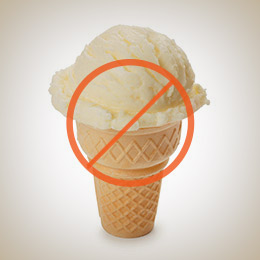
2. Optimize your blood sugar levels by cutting out sugar and refined flour entirely from your diet.
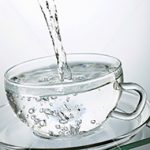
3. Support your body’s ability to detox by drinking 6 to 8 cups of pure water daily, ideally warm or room temperature.

4. Get a good night’s sleep! Seven to eight hours. Ideally, go to bed by 10:00 p.m.

5. Be stress resilient! Practice the Transcendental Meditation technique regularly, twice each day.

6. Check your B12 level with a blood test, especially if you are vegan, vegetarian, or over 40 years of age.

7. Exercise for at least 30 minutes a day, by walking, swimming, or practicing aerobics, strength training, yoga, and so on, five to seven days a week.
BONUS: Take Maharishi AyurVeda “rejuvenative” supplements to increase resilience and stamina and decrease toxins. (Available at www.mapi.com. For a 20 percent discount, click on the banner at the end of this article.)
The herbs Bacopa (Brahmi) and Ashwagandha both have been found to fight plaque in the brain.5 Take Bacopa and Ashwaganda as directed.
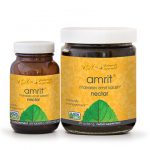
Amrit Nectar (in paste or tablet form) is a powerful antioxidant that also supports detoxification. It has been demonstrated to reduce damaged fats in the brain and increase levels of brain glutathione, a critical detox enzyme.9 Take Amrit Nectar as directed. (The sugar-free version is recommended for anyone trying to improve memory.)
For more information on the anti-aging effects of Maharishi AyurVeda supplements, see the review of research.
* If you have a health condition or take medication, please consult your physician before adopting any new food supplement, exercise, or dietary recommendations. Although unlikely, if any discomfort occurs, stop the above recommendations.
You’re in Control—Next Step Options
Memory loss and cognitive decline are now preventable and reversible, and the control is in your hands. Learn your risk factors, and correct them now to enjoy a youthful mind for many years to come!
1. Take advantage of the online, physician-taught Ayurveda Personal Wellness course to personalize your Maharishi AyurVeda Wellness and Prevention Program. For information and to sign up, visit the Maharishi AyurVeda website.
2. Take my 12-episode online course, “My Ageless BrainTM: 7 Keys to Staying Sharp,” where I present the “7 Keys” and interview guest physician experts. You’ll get instant access to all episodes now, including two live events in May and online Q&A sessions coming this Fall. Sign up now and receive an exclusive, time-limited $100 discount for Enjoy TM News readers only! Use coupon code TM108. For information and to register, visit My Ageless Brain.
3. Have an in-person Maharishi AyurVeda Integrative Medicine (MAVIM) Consultation with a physician in your area. For information, visit the national directory of Maharishi AyurVeda trained medical practitioners.
4. Have a Maharishi AyurVeda Integrative Medicine Consultation at the Teaching and Research Clinic of Maharishi University of Management in Fairfield, Iowa. For information, call (641) 472-7000, ext. 3406, or email appointments@mum.edu.
5. Check out my new book, The Healthy Brain Solution for Women over 40: 7 Keys to Staying Sharp—On or Off Hormones, available on Amazon.
Best-selling author Nancy Lonsdorf, M.D., is a Johns Hopkins and Stanford-trained physician and adjunct faculty at Maharishi University of Management. Dr. Lonsdorf has been a Maharishi AyurVeda practitioner for more than 30 years and is recognized as one of the nation’s most prominent Ayurvedic doctors.
References
1. Lim, Andrew S.P., et al. “Seasonal plasticity of cognition and related biological measures in adults with and without Alzheimer’s disease: Analysis of multiple cohorts.” PLOS Medicine. September 4, 2018. https://doi.org/10.1371/journal.pmed.1002647
2. Bredesen, D.E. “Reversal of cognitive decline: A novel therapeutic program.” Aging. September 2014 (vol. 6, no. 9).
3. Bredesen, D.E. “Inhalational Alzheimer’s disease: An unrecognized—and treatable—epidemic.” Aging. February 2016 (vol. 8, no. 2).
4. Bredesen, D.E, et al. “Reversal of cognitive decline in Alzheimer’s disease.” Aging. June 2016 (vol. 8, no. 6).
5. Rao, V.R., et al. “Ayurvedic medicinal plants for Alzheimer’s disease: A review.” Alzheimer’s Research and Therapy. June 2012 (vol. 4, no. 22).
6. Bredesen, D.E, et al. “Ayurvedic profiling of Alzheimer’s disease.” Alternative Therapies in Health and Medicine. May 2017 (vol. 23, no. 3):46-50.
7. Schneider, R.H. “Altered responses of cortisol, GH, TSH and testosterone to acute stress after four months’ practice of Transcendental Meditation (TM).” Annals of the New York Academy of Sciences. 1994 (746):381-384,.
8. Rome-Johnson, D.W., Barnes, V.A. “Effects of the Transcendental Meditation technique on trait anxiety: A meta-analysis of randomized controlled trials.” Journal of Alternative and Complementary Medicine. 2013 (19):1-12.
9. Vohra, B.P.S.V, et al. “Maharishi Amrit Kalash Rejuvenates Aging Central Nervous System’s Antioxidant Defense System: An In Vivo Study.” Pharmacological Research. 1999 (vol. 40, No. 6): 497-502.
Copyright 2019, Nancy K. Lonsdorf, M.D., All rights reserved. Do not reproduce without written permission of the author.

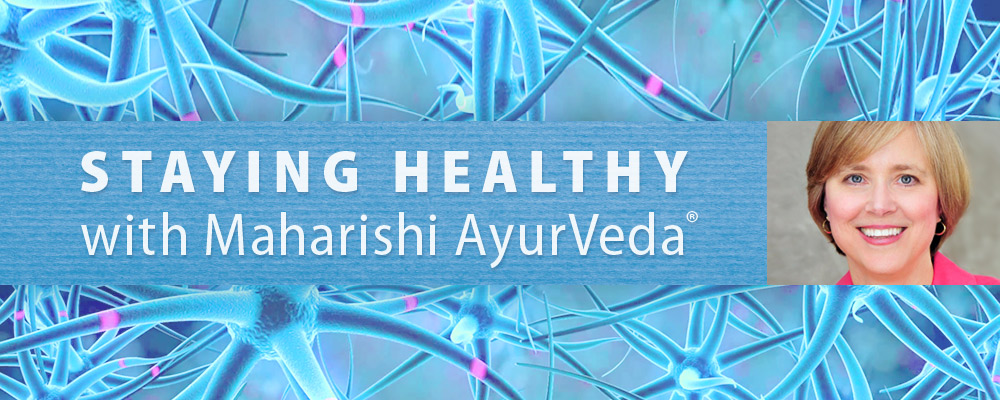
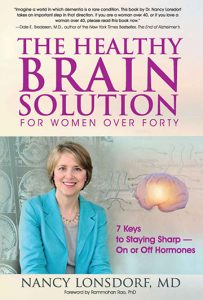

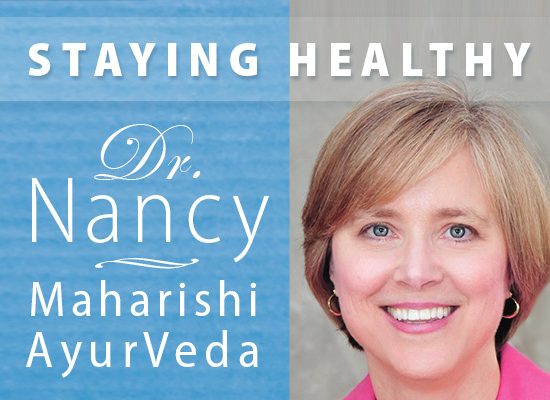
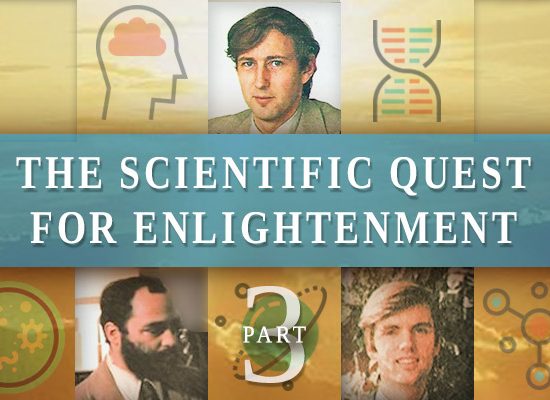
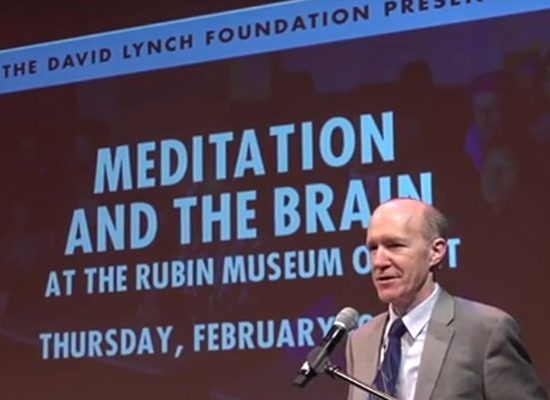
Thanks for all of the words of wisdom, Nancy.
This is such useful and practical info. Thanks, Dr. Nancy!
I agree!
Great article
Dr. Lonsdorf references 9 studies pertaining to Alzheimer’s Disease, 4 of which are from the excellent work of Dale Bredesen, MD. I’ve been doing TM for 48 years and had a “taste of Alzheimer’s” as the mental impairment which can occur after chemotherapy treatments, aka “chemobrain”. ( thankfully my cancer is in remission now and the side effects are fading). In his excellent book, “The End of Alzheimer’s”, Dr. Bredesen recommends everyone at age 50 get a “cognoscopy” which is a kind of “colonoscopy for the brain”. It consists of simple blood tests which can alert you to your risks of Alzheimer’s including the APOE4 gene. Check your insurance: Medicare pays for most or all of the tests. While there is no magic bullet “cure” for Alzheimer’s, there are steps one can take to reduce the risks of developing the disease, and slowing the progression of any disease already present. Having dodged the cancer bullet, I am hoping to dodge the Alzheimer’s bullet also!
I quite enjoy your talks and written material. Well done, Dr. Lonsdorf!